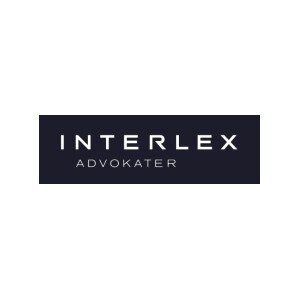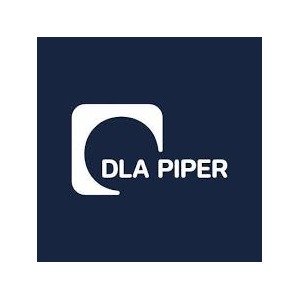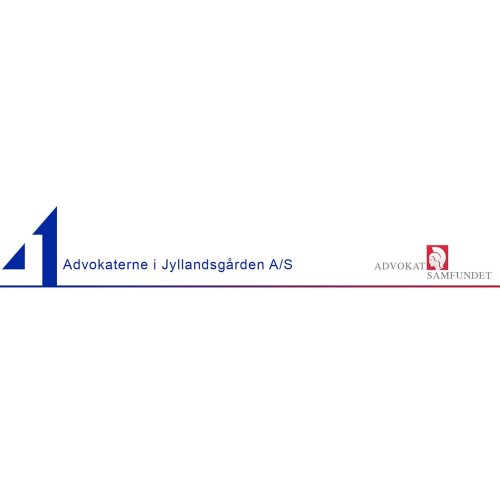Best Structured Finance Lawyers in Aarhus C
Share your needs with us, get contacted by law firms.
Free. Takes 2 min.
List of the best lawyers in Aarhus C, Denmark
About Structured Finance Law in Aarhus C, Denmark
Structured finance is a sophisticated legal and financial practice utilized by companies, institutions, and investors aiming to raise capital, manage risk, or optimize financial transactions. In Aarhus C, Denmark's dynamic business district, structured finance commonly involves the securitization of assets, creation of special purpose vehicles (SPVs), and the design of complex financial instruments tailored to meet unique funding needs. Given Aarhus C's vibrant commercial and financial climate, the demand for structured finance solutions has grown among businesses seeking to enhance liquidity and investors looking to diversify portfolios. Local legal professionals play a crucial role in ensuring these transactions comply with Danish and EU regulations, protecting the interests of all parties involved.
Why You May Need a Lawyer
Structured finance transactions in Aarhus C are intricate and multifaceted, often involving multiple stakeholders, legal documentation, and regulatory review. Individuals or businesses may need a lawyer for several reasons, including:
- Designing unique financial products or solutions for capital raising
- Navigating the regulatory environment for compliance with Danish and European laws
- Setting up and managing special purpose vehicles or entities
- Drafting, reviewing, and negotiating complex legal contracts
- Mitigating risks connected to investments or lending arrangements
- Ensuring lawful securitization of assets to avoid future legal pitfalls
- Addressing potential disputes or claims between parties in structured deals
Given the potential legal ramifications, it is advisable to seek specialized legal guidance before entering or structuring such financial transactions.
Local Laws Overview
In Aarhus C, structured finance is governed by a combination of Danish financial law, civil law, and relevant EU directives and regulations. Key aspects include:
- Financial Contracts Act - Outlines requirements for certain financial agreements and consumer protections
- The Securitisation Regulation (EU) - Dictates transparency, risk retention, and due diligence requirements for securitizations
- Companies Act - Governs the formation, structuring, and operation of special purpose vehicles
- Anti-Money Laundering Laws - Imposes stringent checks on the movement and origin of funds in structured transactions
- Tax Legislation - Establishes tax treatments for structured products, including withholding and corporate taxes
- General Data Protection Regulation (GDPR) - Applies to the handling of personal and business data in structured finance scenarios
Legal compliance is crucial for every stage of a structured finance transaction, as non-compliance can result in severe penalties or contract invalidation.
Frequently Asked Questions
What is structured finance in simple terms?
Structured finance refers to complex financial arrangements designed to meet particular funding goals or risk profiles, often involving pooling assets or using special purpose entities to create tailored investment or borrowing solutions.
What are common types of structured finance in Aarhus C?
Common types include asset-backed securities (ABS), collateralized debt obligations, syndicated loans, and secured lending transactions involving business or real estate assets.
Who regulates structured finance transactions in Denmark?
The Danish Financial Supervisory Authority (Finanstilsynet) oversees structured finance transactions, along with EU regulatory bodies for cross-border or EU-wide deals.
How are special purpose vehicles (SPVs) formed in Denmark?
SPVs in Denmark are generally formed as limited liability companies and must comply with the Companies Act, along with tax and reporting requirements.
What legal risks are associated with structured finance?
Legal risks include enforceability of contracts, failure to meet regulatory requirements, exposure to litigation, and counterparty insolvency or default.
Are there special tax considerations for structured finance transactions?
Yes. Taxation of gains, interest, and the structure itself can be complex and should be reviewed thoroughly to avoid unexpected liabilities.
Do structured finance transactions require regulatory approval?
Some transactions, especially those involving public offerings or cross-border arrangements, may require notification or approval from regulators. A lawyer can clarify whether approval is needed for your specific case.
Can individuals use structured finance solutions or is it just for companies?
While most structured finance products target businesses and institutions, certain solutions may be available to high net worth individuals or investment funds.
How can a lawyer help in a structured finance deal?
A lawyer can assist by drafting and reviewing documents, ensuring compliance, negotiating terms, addressing tax implications, and managing regulatory submissions.
What happens if disputes arise in a structured finance transaction?
Disputes are typically resolved through negotiation, but may escalate to mediation, arbitration, or court proceedings depending on contractual agreements and the nature of the dispute.
Additional Resources
For further information or support regarding structured finance in Aarhus C, you may consider the following resources:
- The Danish Financial Supervisory Authority (Finanstilsynet)
- Aarhus Chamber of Commerce (Erhverv Aarhus)
- Local branches of the Danish Bar and Law Society
- The Confederation of Danish Industry (DI)
- Relevant departments at Aarhus University (Business and Law Faculties)
These organizations offer guidance, industry updates, and can help you connect with qualified legal professionals.
Next Steps
If you believe you need legal assistance with structured finance in Aarhus C, consider the following actions:
- Identify your specific needs or the transaction type you are considering
- Gather all relevant documents and background information
- Contact a local law firm specializing in finance, banking, or corporate law
- Arrange an initial consultation to assess your options and discuss fees
- Work closely with your lawyer to ensure compliance and manage risk at every stage of the transaction
Early legal involvement is essential to avoid costly mistakes and ensure your interests are protected in any structured finance arrangement.
Lawzana helps you find the best lawyers and law firms in Aarhus C through a curated and pre-screened list of qualified legal professionals. Our platform offers rankings and detailed profiles of attorneys and law firms, allowing you to compare based on practice areas, including Structured Finance, experience, and client feedback.
Each profile includes a description of the firm's areas of practice, client reviews, team members and partners, year of establishment, spoken languages, office locations, contact information, social media presence, and any published articles or resources. Most firms on our platform speak English and are experienced in both local and international legal matters.
Get a quote from top-rated law firms in Aarhus C, Denmark — quickly, securely, and without unnecessary hassle.
Disclaimer:
The information provided on this page is for general informational purposes only and does not constitute legal advice. While we strive to ensure the accuracy and relevance of the content, legal information may change over time, and interpretations of the law can vary. You should always consult with a qualified legal professional for advice specific to your situation.
We disclaim all liability for actions taken or not taken based on the content of this page. If you believe any information is incorrect or outdated, please contact us, and we will review and update it where appropriate.

















